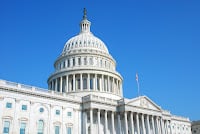The U.S. Senate today passed the Clay Hunt Suicide Prevention for American Veterans (SAV) Act,...
House Passes Build Back Better Act to Invest in Mental Health, Substance Use Disorder Care

Today the U.S. House of Representatives passed the Build Back Better Act, a $2 trillion spending package that includes significant investments in mental health and substance use disorder (SUD) care.
APA applauds the inclusion of these provisions in the legislation:
- Enforcement of mental health parity laws: The 2008 federal parity law requires that insurance coverage for mental health and SUD services be no more restrictive than coverage for other medical care, but there has yet to be full compliance with this law. The legislation would levy civil monetary penalties for violating parity law requirements.
- Expansion of the behavioral health workforce: The legislation would fund 4,000 new, Medicare-supported graduate medical education slots in 2025 and 2026, the largest increase in more than 25 years, and it would allocate 15% of the new residency slots to psychiatry and other behavioral health training programs. Furthermore, it would provide $75 million in funding to award grants to establish or expand programs to enlarge and diversify the maternal mental health and SUD treatment workforce. It would also provide an additional $50 million for the SAMHSA Minority Fellowship Program in which APA participates.
- Enhancement of crisis services: The legislation would make permanent an increase in Medicaid funding for mobile crisis response. It would also include $75 million in funding for the National Suicide Prevention Lifeline to help expand programs as the Lifeline transitions to the new 988 number next summer.
- Increased access to care: The legislation would provide 12 months of continuous eligibility to children enrolled in Medicaid and the Children’s Health Insurance Program (CHIP) and permanently extends the state option. It would also invest in Medicaid by extending coverage to women 12 months after giving birth, permanently enhancing federal funding for the territories, and covering people 30 days prior to leaving jail or prison. In addition, the legislation would boost access to care through Certified Community Behavioral Health Care Clinics and would expand tax credits for purchasing insurance through the Affordable Care Act marketplaces.
APA urges the Senate to ensure that these provisions are retained in the final reconciliation package.
For more information, see the Psychiatric Services article “Supporting the Mental Health Workforce During and After COVID-19.”
(Image: iStock/Elisank79)
Don't miss out! To learn about newly posted articles in Psychiatric News, please sign up here.






